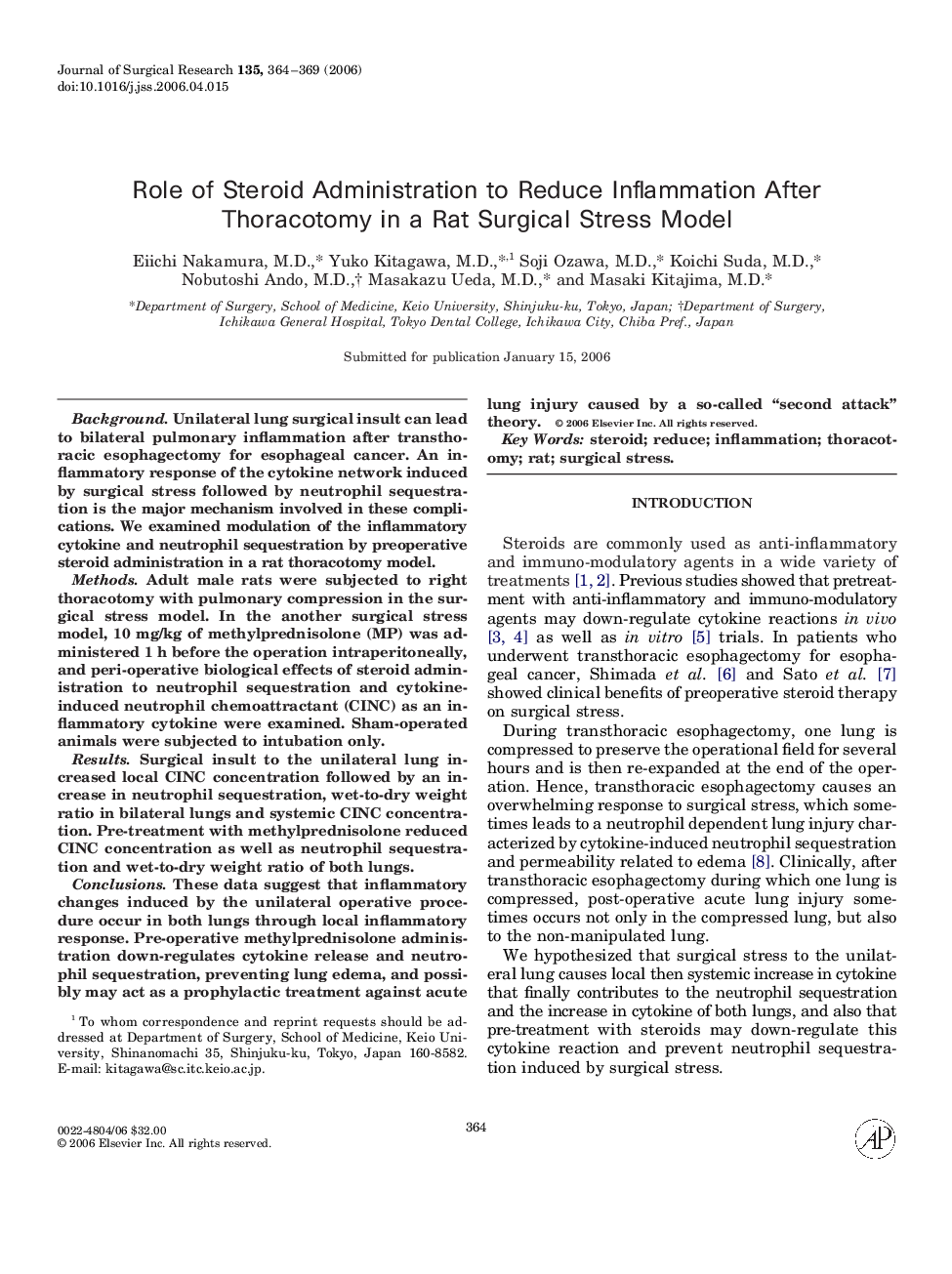| Article ID | Journal | Published Year | Pages | File Type |
|---|---|---|---|---|
| 4304905 | Journal of Surgical Research | 2006 | 6 Pages |
BackgroundUnilateral lung surgical insult can lead to bilateral pulmonary inflammation after transthoracic esophagectomy for esophageal cancer. An inflammatory response of the cytokine network induced by surgical stress followed by neutrophil sequestration is the major mechanism involved in these complications. We examined modulation of the inflammatory cytokine and neutrophil sequestration by preoperative steroid administration in a rat thoracotomy model.MethodsAdult male rats were subjected to right thoracotomy with pulmonary compression in the surgical stress model. In the another surgical stress model, 10 mg/kg of methylprednisolone (MP) was administered 1 h before the operation intraperitoneally, and peri-operative biological effects of steroid administration to neutrophil sequestration and cytokine-induced neutrophil chemoattractant (CINC) as an inflammatory cytokine were examined. Sham-operated animals were subjected to intubation only.ResultsSurgical insult to the unilateral lung increased local CINC concentration followed by an increase in neutrophil sequestration, wet-to-dry weight ratio in bilateral lungs and systemic CINC concentration. Pre-treatment with methylprednisolone reduced CINC concentration as well as neutrophil sequestration and wet-to-dry weight ratio of both lungs.ConclusionsThese data suggest that inflammatory changes induced by the unilateral operative procedure occur in both lungs through local inflammatory response. Pre-operative methylprednisolone administration down-regulates cytokine release and neutrophil sequestration, preventing lung edema, and possibly may act as a prophylactic treatment against acute lung injury caused by a so-called “second attack” theory.
